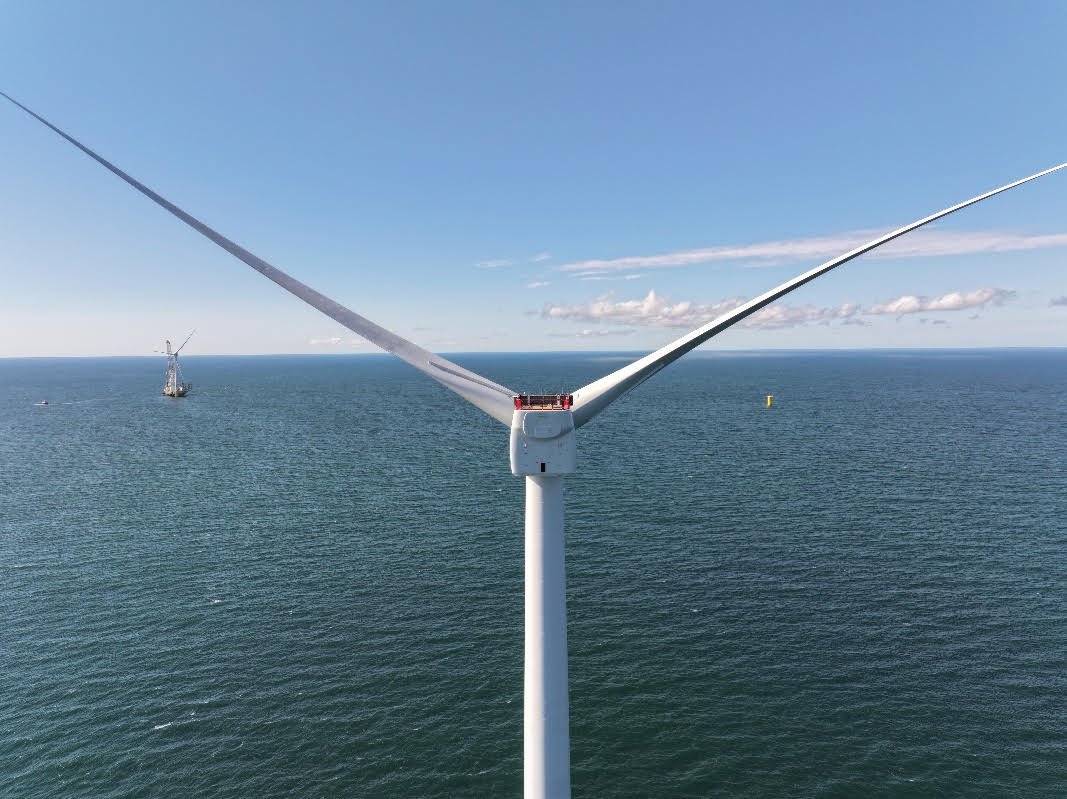
In a significant development reflecting the evolving landscape of global climate action, carbon management pioneer Carbon Direct has announced its acquisition of Pachama, a prominent startup focused on nature-based carbon credits. This strategic move, confirmed by both companies today, underscores a pivotal moment for the voluntary carbon market (VCM), signaling a trend towards consolidation, heightened scientific rigor, and a renewed emphasis on integrity amidst growing skepticism and economic headwinds. The undisclosed terms of the deal bring together two distinct yet complementary entities in the complex ecosystem of carbon offsetting.
The Voluntary Carbon Market: A Brief Overview
The voluntary carbon market emerged as a crucial mechanism designed to channel private finance into projects that reduce, remove, or avoid greenhouse gas emissions. Unlike compliance markets, which are mandated by regulatory bodies, VCMs allow companies, organizations, and even individuals to voluntarily purchase carbon credits to offset their own unavoidable emissions, often as part of broader corporate sustainability strategies or net-zero commitments. Each credit typically represents one metric ton of carbon dioxide equivalent (CO2e) either prevented from entering or removed from the atmosphere. These markets fund a diverse array of projects, ranging from renewable energy installations and improved cookstoves to, critically, nature-based solutions like reforestation, afforestation, and the preservation of existing forests, which Pachama specialized in. The promise of the VCM lies in its potential to accelerate climate action beyond regulatory minimums, fostering innovation and providing much-needed capital for climate-friendly initiatives globally.
A Period of Intense Scrutiny and Correction
Despite its ambitious goals and rapid growth, the voluntary carbon market has not been without its challenges. Over the past few years, it has faced increasing scrutiny regarding the efficacy and genuine impact of many of its projects. Concerns about "greenwashing"—where companies use offsets to project an environmentally friendly image without making substantial changes to their core operations—have become widespread. A critical issue revolves around "additionality," the principle that a carbon project would not have happened without the revenue generated from carbon credits. For nature-based projects, this often translates to the question of whether a forest protected by credit purchases was genuinely under threat of destruction in the first place, or if its preservation would have occurred regardless.
This intensified examination reached a crescendo with several high-profile investigations. For instance, a major report by The Guardian in early 2023, based on research into Verra, one of the world’s leading carbon credit certifiers, alleged that more than 90% of rainforest offset credits it approved were "worthless" and did not represent real carbon reductions. Such findings severely eroded buyer confidence, leading to a significant downturn in credit prices and demand. Pachama itself experienced the direct impact of this market softening, having laid off approximately 20 employees in the summer, as reported by Trellis. Diego Saez Gil, CEO of Pachama, acknowledged the challenging environment, telling Trellis that "the current uncertain and volatile financial, economic, and geopolitical climate, added to the anti-ESG agenda in the U.S., is indeed having an effect on corporate sustainability budgets." He further noted that "the impact is especially acute in the voluntary carbon market, which was already in a moment of correction." This correction highlights a critical juncture for the market, forcing a re-evaluation of its foundational principles and operational methodologies.
Strategic Synergy: Carbon Direct and Pachama Unite
The acquisition of Pachama by Carbon Direct can be viewed as a strategic response to these market pressures, aiming to merge scientific rigor with project execution. Carbon Direct has positioned itself as a science-driven carbon management platform. Its core business involves advising major corporations on their carbon footprints, helping them set robust decarbonization strategies, and critically, vetting carbon credits to ensure their integrity and impact. With customers including industry giants like Microsoft, Shopify, American Express, JP Morgan, Alaska Airlines, and BlackRock, Carbon Direct represents a significant demand-side force in the VCM, prioritizing quality and verifiability.
Pachama, on the other hand, brought a unique technological approach to the nature-based credit sector. The company leveraged artificial intelligence and machine learning, coupled with satellite imagery and remote sensing, to monitor, verify, and quantify carbon stored in forests. This technological backbone was designed to address some of the verification challenges inherent in nature-based projects, offering a more data-driven approach to assessing impact. Pachama had attracted substantial investment, raising $88 million from prominent backers such as Amazon’s Climate Pledge, Breakthrough Energy Ventures, Lowercarbon Capital, and a roster of celebrity angel investors including Ellen DeGeneres, Laura Dern, and Serena Williams, signaling its potential and the broader interest in scaling nature-based solutions. Carbon Direct, with its $60.8 million in funding, now integrates this project-level expertise into its broader advisory and vetting services.
The synergy is clear: Carbon Direct’s scientific validation and corporate demand for high-quality offsets can now be directly informed and potentially fulfilled by Pachama’s technology-driven approach to developing and monitoring nature-based projects. This vertical integration could lead to more robust, transparent, and verifiable carbon credit offerings, directly addressing the trust deficit that has plagued the market.
Navigating the Nuances of Nature-Based Credits
Nature-based solutions, particularly forest conservation and restoration, have long been lauded for their dual benefits: sequestering carbon and enhancing biodiversity. However, they are also among the most complex and contentious types of carbon credits. Beyond additionality, challenges include "leakage" (where protecting one forest leads to deforestation elsewhere), "permanence" (the risk of reversals due to fires, disease, or re-logging), and accurately quantifying the carbon benefits over long periods.
Pachama’s use of advanced technology aimed to mitigate some of these complexities by providing more objective and continuous monitoring. By integrating this capability, Carbon Direct potentially strengthens its ability to recommend and source credits that meet stringent scientific criteria. This could set a new benchmark for how nature-based projects are developed, verified, and integrated into corporate sustainability portfolios, shifting the focus from simply "buying offsets" to investing in genuinely impactful climate solutions.
Consolidation as a Catalyst for Quality
The acquisition marks a significant instance of consolidation within the VCM, a trend often seen in maturing industries. While the immediate trigger for Pachama may have been a softening market and financial pressures, the broader implication is a market moving towards higher standards and fewer, but more robust, players. This consolidation could be a necessary step for the VCM to regain credibility and scale effectively.
Expert commentary suggests that such mergers and acquisitions are indicative of a market correcting itself, weeding out less effective projects and business models, and favoring those that can demonstrate verifiable impact. As one general market analyst might observe, "The voluntary carbon market is undergoing a necessary evolution. The initial ‘wild west’ phase of rapid growth is giving way to a period where scientific integrity, transparency, and demonstrable impact are paramount. Consolidation like this signals that the market is maturing and that buyers are demanding higher quality." This trend could lead to a bifurcation of the market, with premium prices commanded by high-integrity credits and a declining demand for those lacking robust verification.
The Broader Implications for Corporate Sustainability
For corporations committed to net-zero pledges, the changing dynamics of the VCM have profound implications. While the anti-ESG (Environmental, Social, and Governance) movement in the U.S. and elsewhere has prompted some companies to dial back public pronouncements, many remain steadfast in their commitment to decarbonization. The need for credible carbon offsets as part of a comprehensive strategy (alongside direct emissions reductions) remains. Companies like Microsoft, a Carbon Direct client, have been pioneers in demanding high-quality, durable carbon removal credits. This acquisition further empowers Carbon Direct to serve such clients by potentially offering a more streamlined and scientifically validated pathway to sourcing effective nature-based solutions.
The market’s shift towards quality also places greater responsibility on corporations to perform rigorous due diligence on their offset purchases. Simply buying the cheapest available credits is no longer a viable strategy for maintaining corporate reputation or achieving genuine climate impact. Instead, companies will increasingly seek partners who can provide clear methodologies, transparent reporting, and verifiable results, aligning their climate investments with their broader sustainability goals.
Looking Ahead: The Future of Carbon Markets
The acquisition of Pachama by Carbon Direct is more than just a corporate transaction; it’s a barometer for the future direction of the voluntary carbon market. It suggests a future where scientific validation and technological innovation are not just desirable but essential for success. As the world grapples with the urgency of climate change, the VCM’s role in mobilizing capital for climate solutions will remain critical. However, its effectiveness hinges on its ability to evolve, adapt to scrutiny, and consistently deliver on its promise of genuine climate impact. This landmark deal points towards a market that, while facing significant challenges, is actively working to refine its standards, consolidate expertise, and ultimately, build greater trust and effectiveness in the global fight against climate change. The coming years will reveal whether this consolidation truly ushers in an era of greater integrity and accelerated climate action for the VCM.






